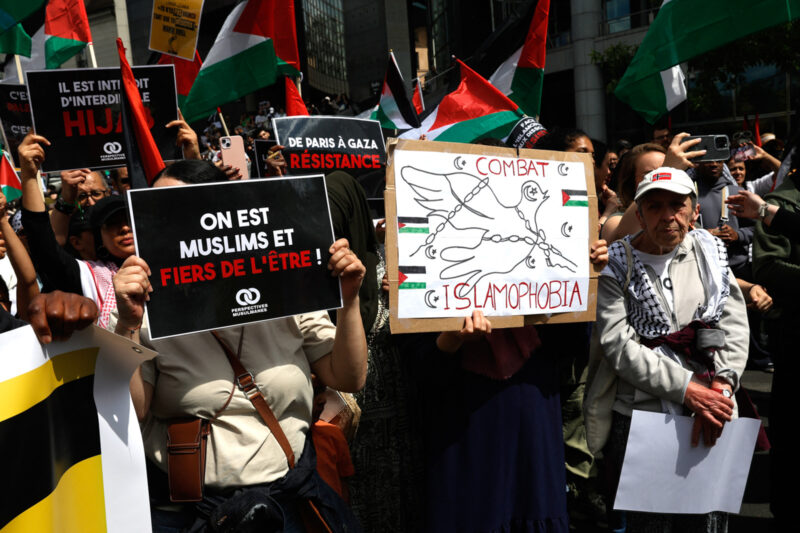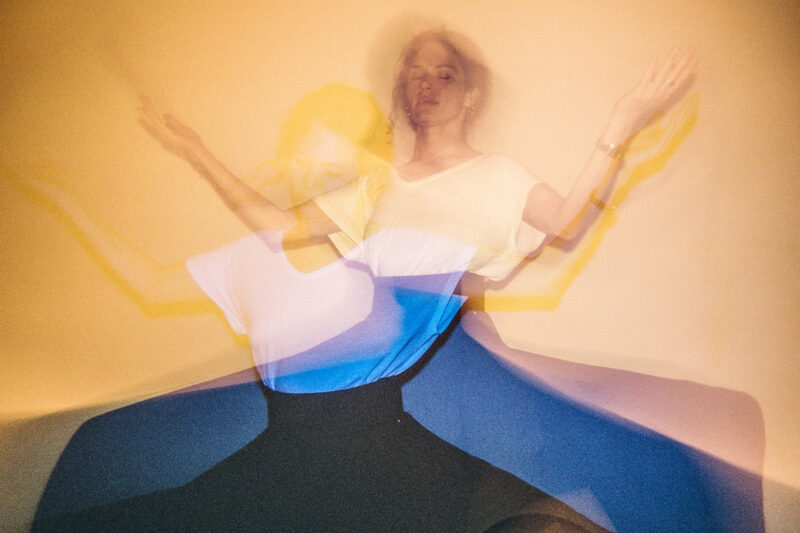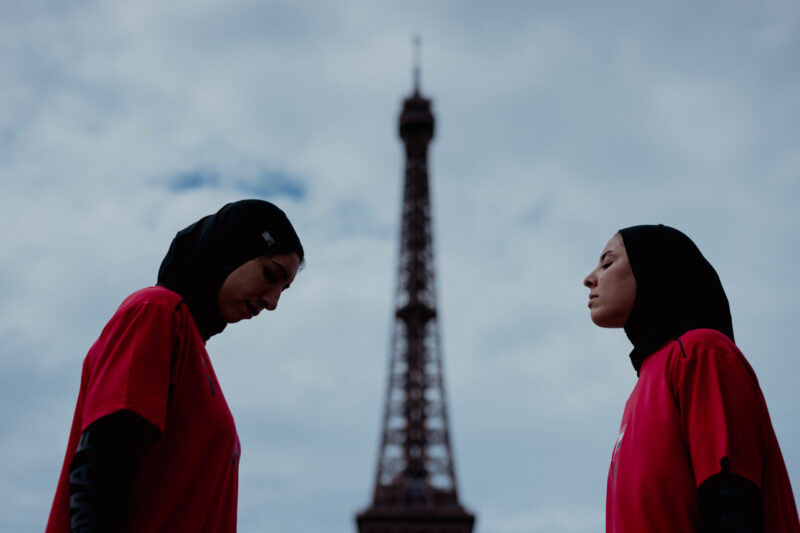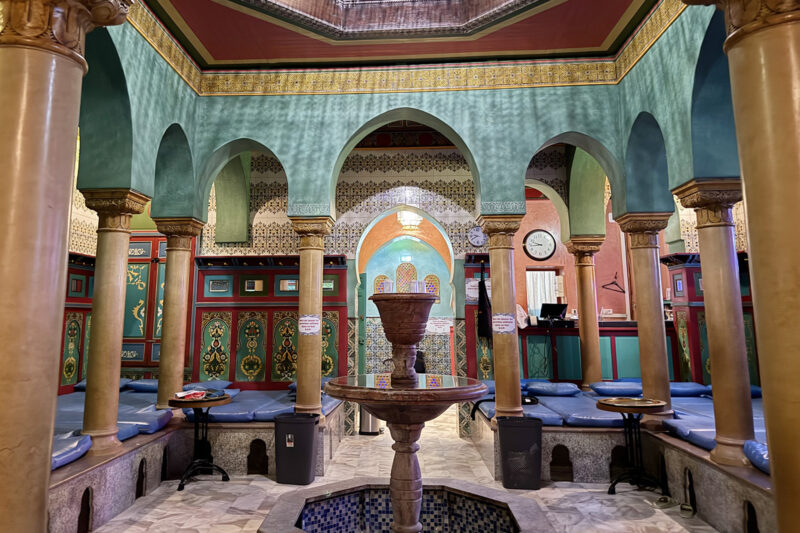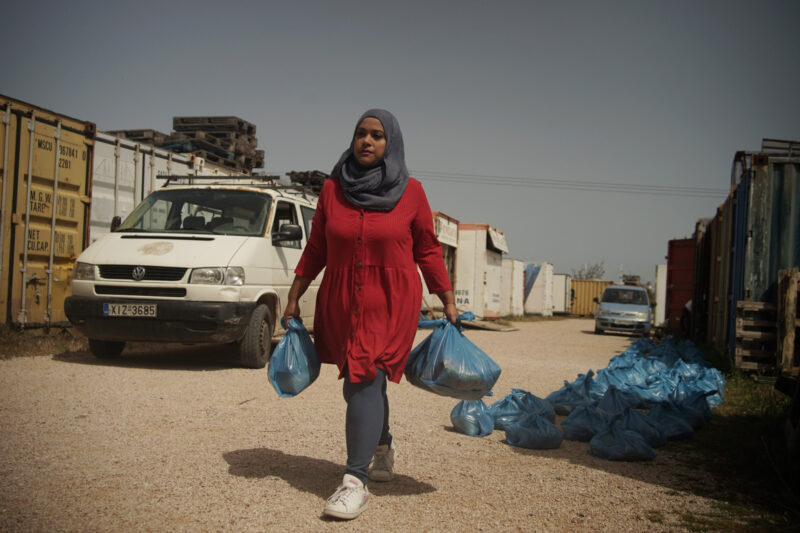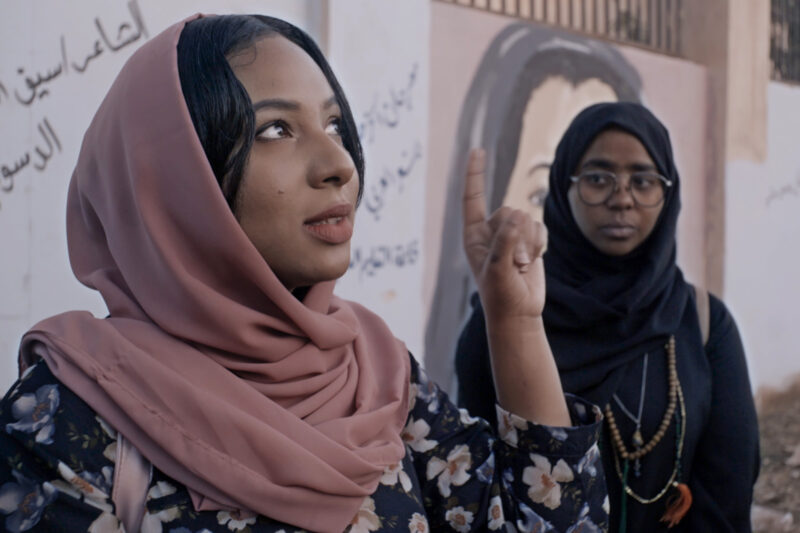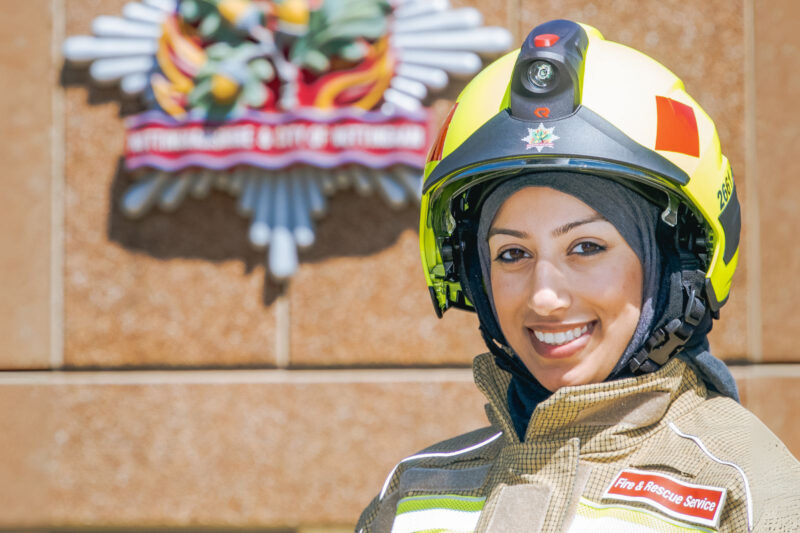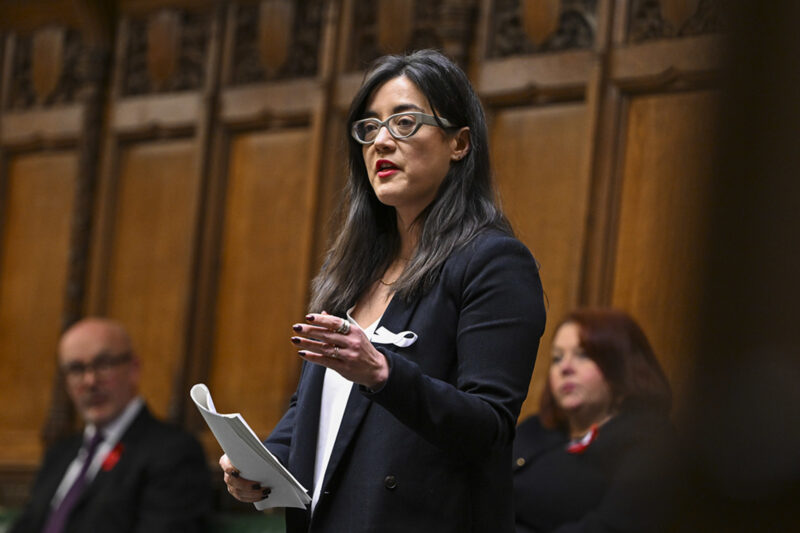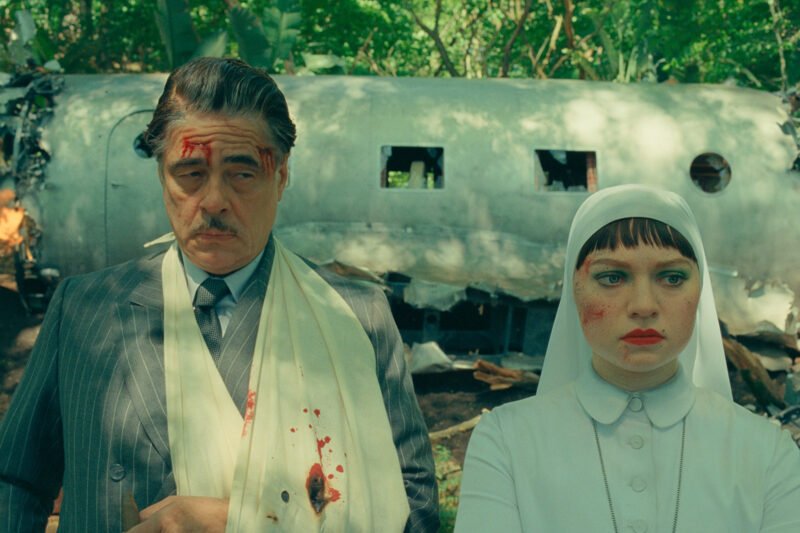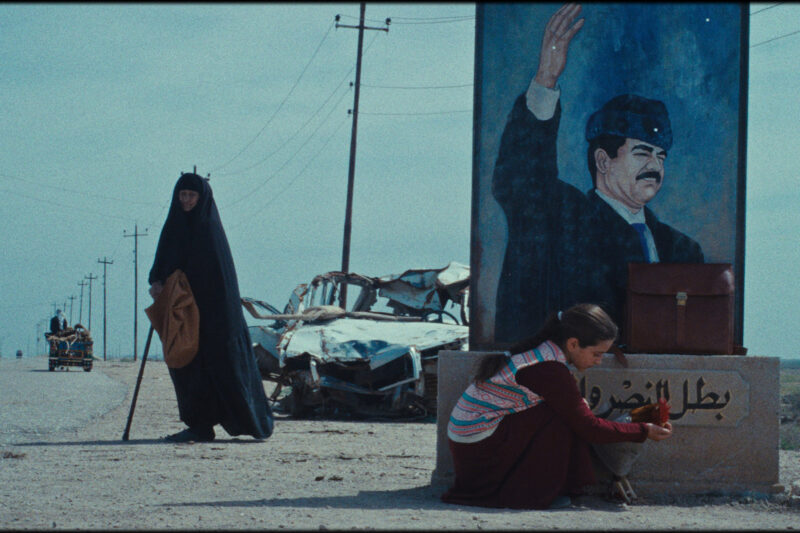New documentary explores the role of Islamophobia in French politics
Seven years after the Paris attacks, The Flag examines the connection between the media, political discrimination against French Muslims and the erosion of civil liberties
–
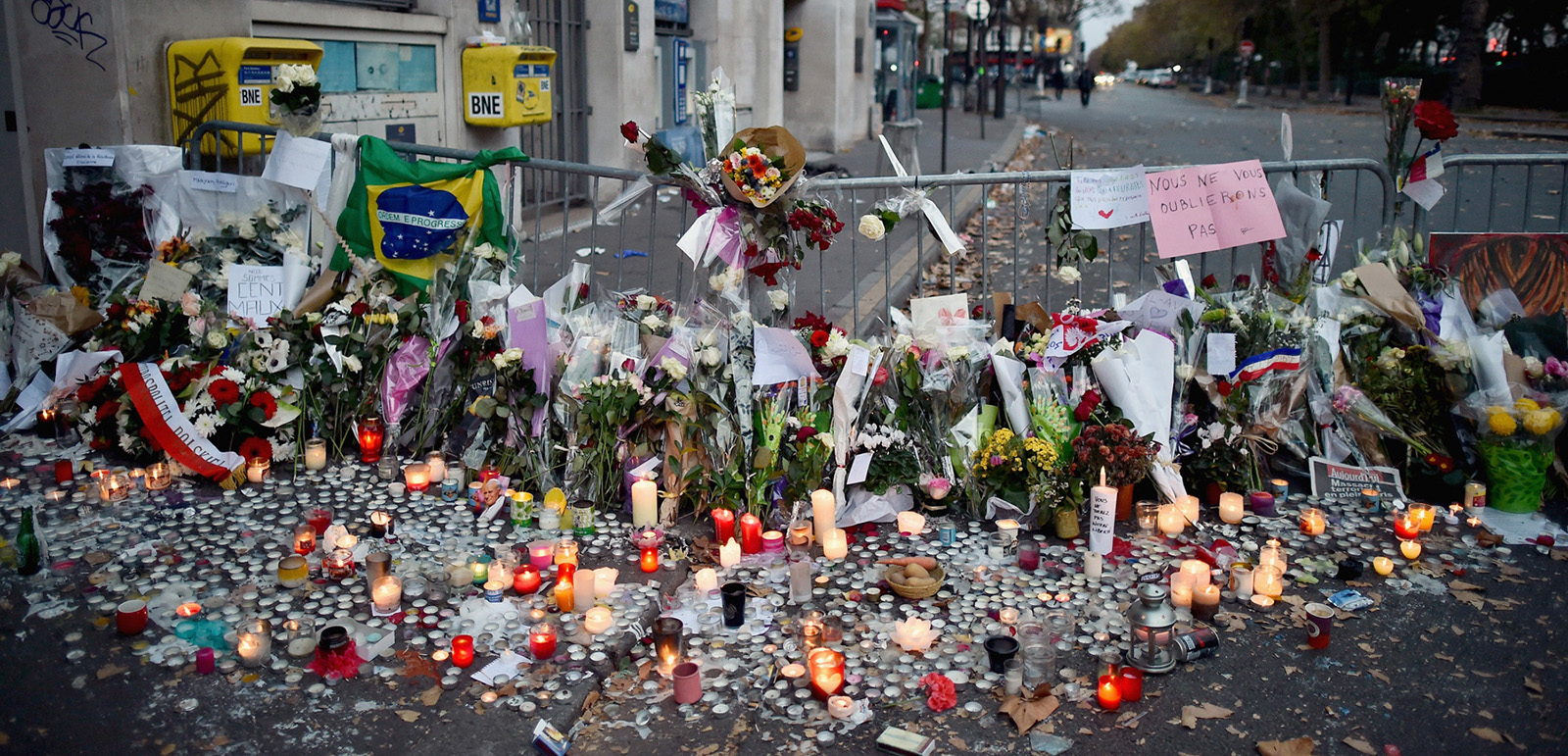
Joseph Paris fell into a state of mourning following the Paris terror attacks of 13 November, 2015, in which 130 people were killed and more than 350 injured in coordinated assaults across the French capital. It was the deadliest attack on French soil in modern history and left the country in a state of shock. However, the filmmaker was also alarmed by the government response.
Overnight, then President François Hollande declared a state of emergency, granting extraordinary powers to security services, such as the right to conduct property searches at any time without judicial oversight. The authorities were also given the right to forbid mass gatherings, including protests. The state of emergency was extended six times over a period of two years. Paris felt he had to “do something about it”.
During a protest against the measures, held in the capital in February 2016, Paris, now 38, met the human rights advocate Yasser Louati. The two spent the next seven years collaborating on The Flag, a new feature documentary premiering at the CPH:DOX festival on March 20, which aims to show how Islamophobia became embedded in French politics.
The film follows Louati, who is of North African descent, at work attending protests, speaking at events and media engagements, with the activist providing analysis and commentary throughout. Paris describes Louati, now 42, as his “compass”. The filmmaker, who was born in the suburbs of Lyon and now lives in Saint-Denis, a suburb north of Paris, had always considered himself a staunch anti-racist, but admits that it was only through researching the documentary with Louati that he fully understood Islamophobia in that context.
“I discovered that racism is not only to hate foreigners and Black people and Arabs,” he said.
He also came to the conclusion that the state purposely “misleads the public about one of the founding principles of French society, using laïcité” — the notion of a secular state and the religious neutrality of the public sphere — to justify “rampantly Islamophobic and racist policies”.
‘If I get arrested again, that will just prove my point that French democracy is a myth’
The separation of church and state has been enshrined in French law since 1905, but in 2004 the government enforced religious neutrality on the country’s educational institutions. The state introduced a law forbidding the wearing of “signs and dress that conspicuously show the religious affiliation of students”. The legislation became known as the ‘hijab ban’ because, as Human Rights Watch pointed out, it disproportionately affected Muslim girls.
The Flag, however, traces the roots of anti-Muslim bias in France back to the 1980s. It was at this point Louati explained, that the French state under Socialist party President Francois Mitterand and the French media began to talk about the “Muslim problem” among immigrant workers, in order to justify a crackdown on strikes in car factories.
Louati hopes the film will show a different side to Muslims than the one generally offered by the media and politicians, documenting that Muslim workers were activists and part of a long French tradition of labour organisation. It argues that Islamophobia has slowly become a mainstream ideology and a “respectable form of racism” that has gradually been embraced by parties across the political spectrum.
For Louati, the effect of these attitudes on French Muslims is clear. According to a 2019 poll by the market research firm Ifop, 42% of Muslims living in France say they have experienced religious discrimination.
During the two-year state of emergency, more than 4,600 warrantless raids were carried out across the country, mostly based on unconfirmed intelligence reports and anonymous tips. According to Human Rights Watch, approximately 80% took place within six months of the attacks and most targeted French Muslims. Counterterrorism units then launched around 1,000 criminal investigations and placed 646 people in custody. According to the French newspaper Le Monde, only a handful of cases resulted in terror-related prosecutions.
On 1 November, 2017, the state of emergency was lifted, only to be replaced by a new anti-terror law that permanently granted law enforcement agencies extended powers to search homes, close religious sites that it considers to promote radical ideas and restrict the movement of suspected jihadist sympathisers.
Paris, who is best known for his 2014 documentary Naked War, about the Ukrainian feminist movement Femen, pointed out that Muslims were the first, but not the only victims of the state of emergency. This sentiment was encapsulated in a speech Louati gave at the protest where he and Paris met, which appears in the documentary.
“Three weeks after the state of emergency, they targeted environmentalists, activists like you. They said: ‘You’ll get what you accepted for citizens of the Muslim faith’,” he said.
Between November 2015 and May 2017, French officials also used the state of emergency to limit protests, many of which were against proposed labour reforms. Even after 2017, the authorities continued their crackdown, targeting the Yellow Vest protests in particular — many of which were banned by current president Emmanuel Macron. UN High Commissioner for Human Rights Michelle Bachelet has condemned the “excessive use of force” used by the French police against those protestors.
The increasingly oppressive atmosphere has had a chilling effect on civil society, including non-profit organisations such as the Collective Against Islamophobia in France, which shut down preemptively in 2020 after Interior Minister Gerard Darmanin called for its dissolution. Barakacity, another Muslim NGO, was shut down by the government, after Darmanin accused its founder of posting “hateful” comments on his Twitter account.
In August 2021, Macron introduced a law consolidating respect for the principles of the Republic, which many on the left have warned constitutes an attack on civil liberties. The authors of the European Commission’s 2021 European Islamophobia Report criticise it for “provoking a violent crackdown on Muslim visibility and organisation”.
“We are giving ourselves the means to fight against those who misuse religion to attack the values of the Republic,” Darmanin said on Twitter.
Paris, however, wants to look at the impact on broader French society of the state’s fight against the perceived threat posed by terrorism.
“The most important message I want viewers to get from this documentary is that although minority groups are the first to be targeted by racist discourse, this leads not only to the decline of their civil liberties, but also everyone else’s,” he said.
“I don’t know if the politicians will bother answering to the film, but I hope they will so the debate on their record while in power can take place.”
Louati is not unfamiliar with controversy. In 2019 he was sued by Julien Odoul, a member of the far-right party National Rally and of the French National Assembly, for calling on the members of Odoul’s constituency to mobilise and confront him about his “multiple anti-Muslim public stances”. He was arrested shortly afterwards for “incitement of hatred” and “calls to violence”. However, he is unconcerned by any possible consequences of his participation in The Flag.
“Had they been doing their job properly and not resorting to scapegoating minorities, dividing and resorting to violence, there would not have been a film about it,” Louati said. “If I get arrested again, that will just prove my point that French democracy is a myth and that the French republic is a broken promise.”
The Flag will also feature at the One World and Movies that Matter festivals, and will be released in theatres this autumn.
 Newsletter
Newsletter


